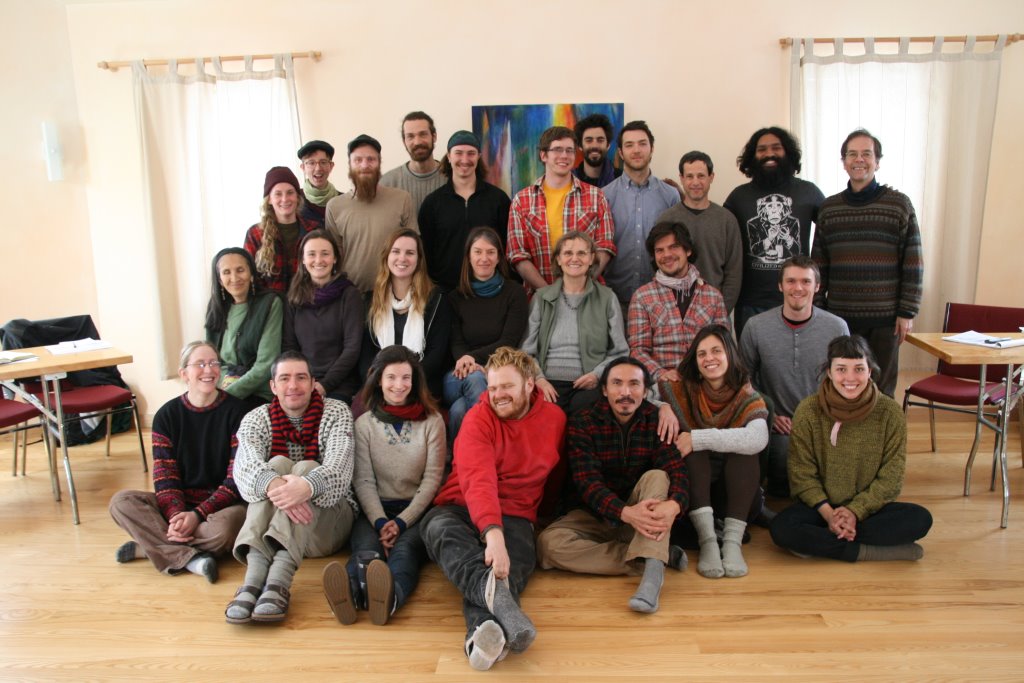
The Biodynamic Winter Intensives were held at the Nature Institute and Hawthorne Valley Farm during the weeks of February 8-12 and 15-19. Jonathan Code from Crossfields Institute International, based in Stroud in England, joined the faculty for the second of the two weeks. Jonathan co-directs a distance-learning, postgraduate course called Researching Holistic Approaches to Agroecology, which supports research and inquiry into a variety of approaches to land stewardship and social development related to agroecological initiatives. The course currently supports students in Canada, the US, England, Malawi, and Denmark and is enrolling now for the autumn 2016. Biodynamics features as one of the strands of the course.
By Jonathan Code
I landed back in the UK from the recent Hawthorne Valley winter intensives to find a real buzz in the UK biodynamic world sparked by a royal endorsement for biodynamics. HRH Prince Charles recorded a ten-minute video that was shown at an Italian biodynamic conference in mid-February, and links to that video were landing in my inbox from all directions. It is clearly significant when a public figure of this standing speaks openly for biodynamics and acknowledges the importance of Rudolf Steiner’s impetus for a new agriculture and also the current developments in this realm. This is good news.
It will, however, also be interesting to see what follows from this short video. It has clearly given great encouragement for those working with biodynamics, at least from what I can see here in the UK. It will, of course – due to the speaker’s public profile – also stimulate questions for many people unfamiliar with biodynamics, who may be hearing about it for the first time from this prominent public figure.
What is this thing called biodynamics? Is it a method? A movement? A worldview?
Questions such as these – and many others – arose during the winter intensive from a very dynamic and diverse group of participants, some new to biodynamics and some deeply steeped in its study and practice. Our approach to these questions in the brief week we had together was to allow them to be distilled through facilitated social process, where they were cultivated and nurtured in dialogue and in silent reflection. We pondered the realm of the stars, soils, and plants and their mutual interactions through presentations. We also explored experiential approaches to engaging these subjects through "trying on" different lenses, or ways of knowing, as availed by the alchemical worldview and contemporary holistic perspectives on science.
I hope we were able to cultivate these questions, to allow them to grow further, and I know that I came back with deeper ones myself. A really precious gift for me from this week at Hawthorne Valley, alongside the meetings and new connections made, was to experience deeply something that I just don’t get here in the UK. Bitter cold, wind chill, crunch of snow underfoot, deep blue sky, and sunlight amplified by the crystalline carpet underfoot. An experience that went deeply into my bones. Though this was followed promptly by a spike in temperature, which dissolved everything in the space of a day – what better way to engage the polarities inherent in the agriculture course than this?
Jonathan Code is a lecturer with Crossfields Institute International. He helps run the MA Researching Holistic Approaches to Agroecology and the BA Philosophy, Arts, and Social Entrepreneurship. Jonathan has a deep interest in consciousness studies, western esotericism, the natural sciences, and education. These interests informed both his bachelor’s degree (Intregral Studies, CIIS, California) and his M. Ed (Social and Environmental Education, RSUC Oslo). Jonathan has taught practical chemistry, phenomenology, and nature study to learners of all ages for many years, and he continues to contribute to adult and higher education initiatives both in the UK and abroad. Jonathan teaches in biodynamic education programs in the UK and abroad. Jonathan's book Muck and Mind: Encountering Biodynamic Agriculture is published by Lindisfarne Press.

Add new comment